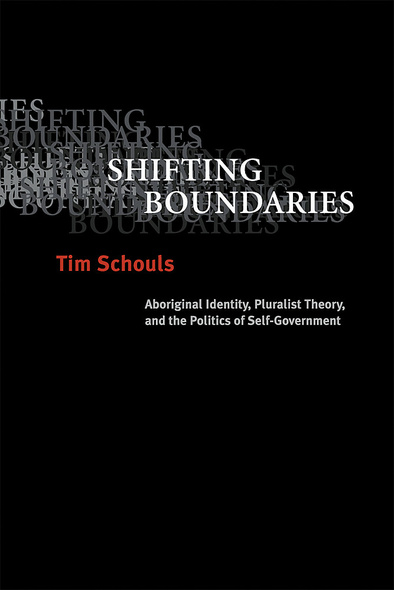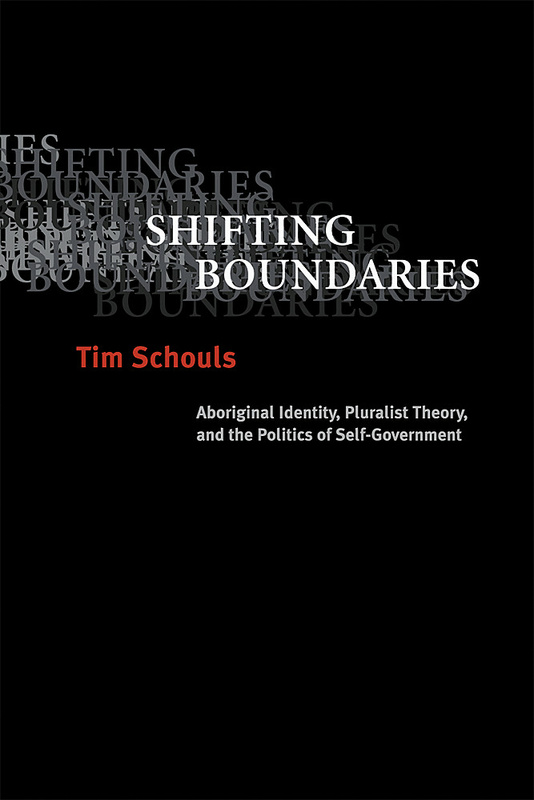
Shifting Boundaries
Aboriginal Identity, Pluralist Theory, and the Politics of Self-Government
Canada is often called a pluralist state, but few commentators view Aboriginal self-government from the perspective of political pluralism. Instead, Aboriginal identity is framed in terms of cultural and national traits, while self-government is taken to represent an Aboriginal desire to protect those traits. Shifting Boundaries challenges this view, arguing that it fosters a woefully incomplete understanding of the politics of self-government.
Taking the position that a relational theory of pluralism offers a more accurate interpretation, Tim Schouls contends that self-government is better understood when an “identification” perspective on Aboriginal identity is adopted instead of a “cultural” or “national” one. He shows that self-government is not about preserving cultural and national differences as goods in and of themselves, but rather is about equalizing current imbalances in power to allow Aboriginal peoples to construct their own identities.
In focusing on relational pluralism, Shifting Boundaries adds an important perspective to existing theoretical approaches to Aboriginal self-government. It will appeal to academics, students, and policy analysts interested in Aboriginal governance, cultural studies, political theory, nationalism studies, and constitutional theory.
This is an academically courageous effort, fording into an area well marked in Canada ... Tim Schoul’s book is important as it gives us a window into how Aboriginal self-government policy in Canada may indeed develop once a period of ‘treaty federalism’ is over. We can only hope that his ‘relational pluralism’ – highly-contextually defined, open to renegociation, driven by local needs, rooted in mutual trust and justice – will prevail. It is refreshing to read his optimism and the book will no doubt play a part in the shaping of public policy and national debate on Aboriginal self-government.
Shifting Boundaries is a significant contribution regarding a matter of profound public importance. It is destined to deepen scholarly understanding of the normative and political importance of Aboriginal self-government, and advance Canada's capacity to promote intercultural understanding.
Acknowledgments
Introduction
1 Identity Politics and Pluralist Theory
2 Approaches to Aboriginal Identity
3 Aboriginal Culture, Nation, and the Politics of Difference
4 Aboriginal Women, Youth, and the Priority of Individual Choice
5 Aboriginal Boundaries and the Demand for External Equality
6 Aboriginal Identity and the Desire for Internal Equality
Conclusion: Aboriginal Self-Government and the Politics of Pluralism
Notes
Bibliography
Index




